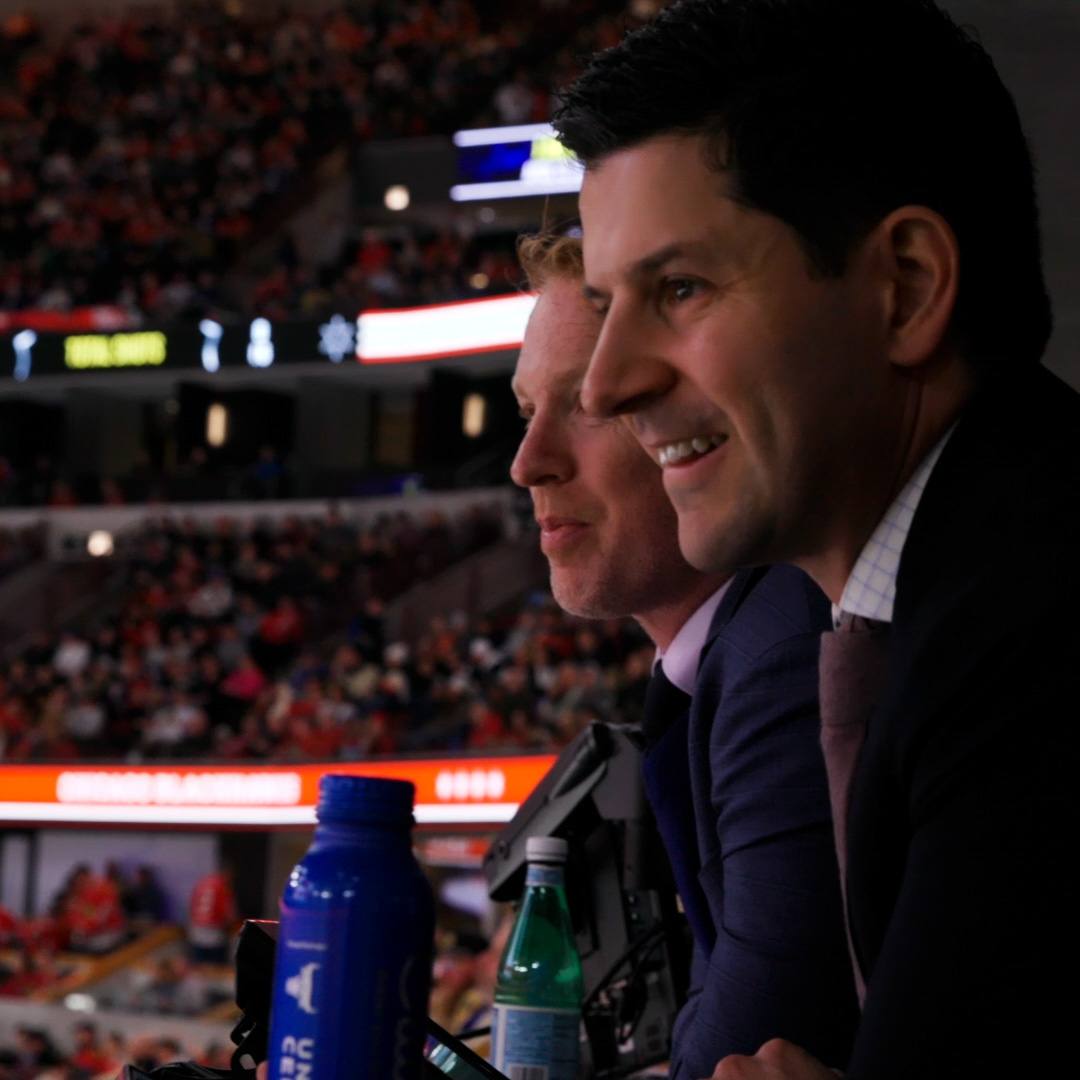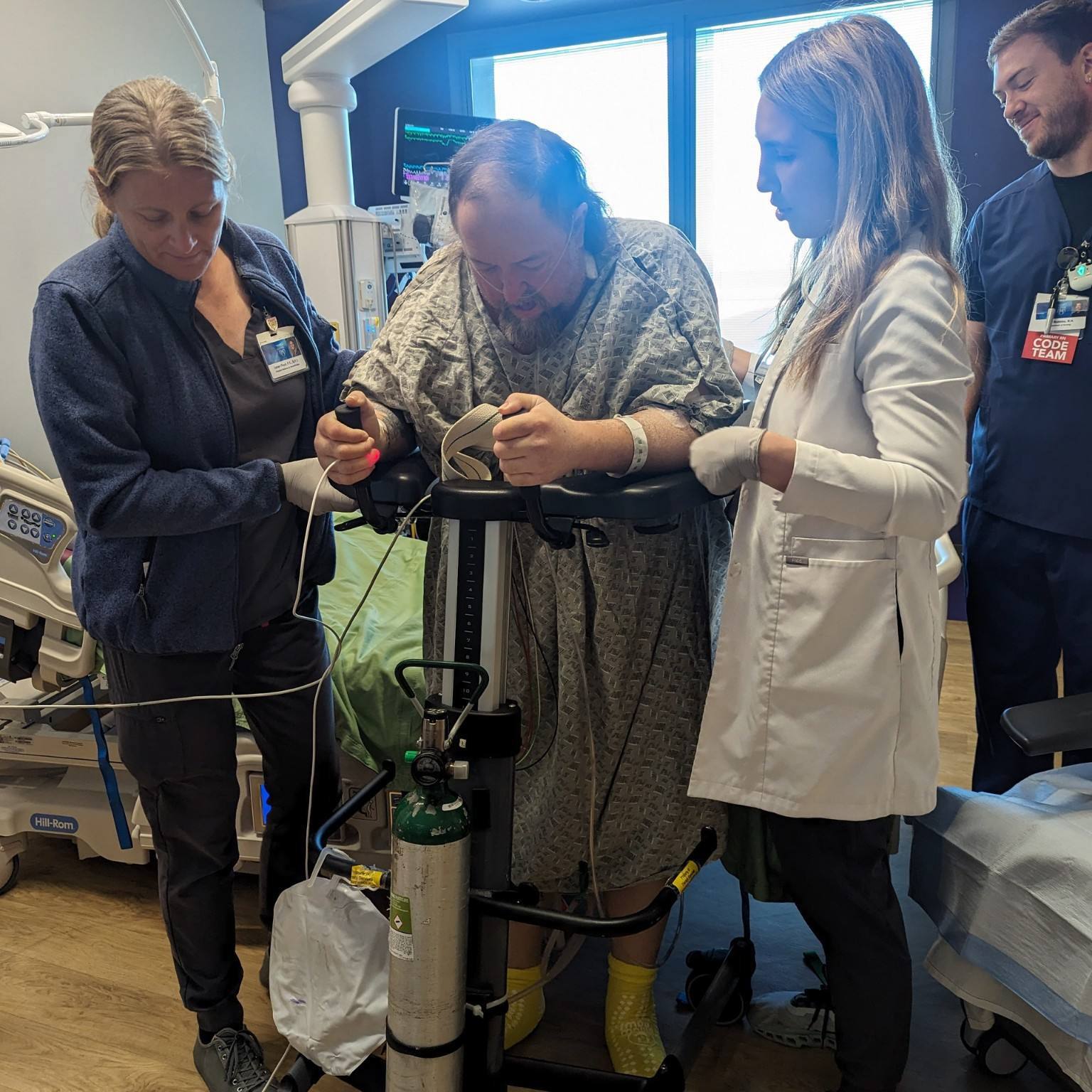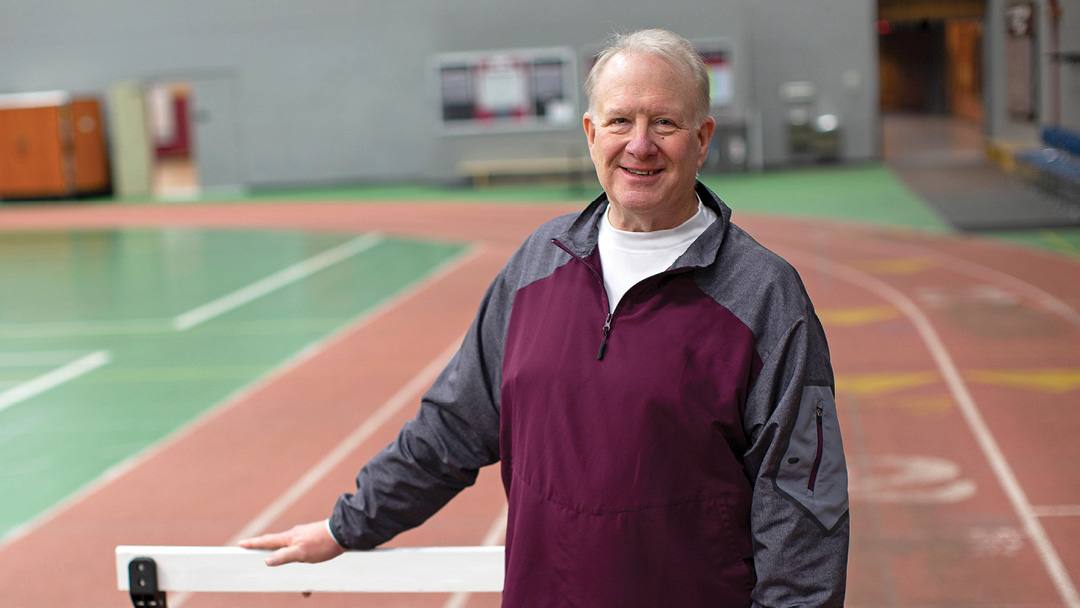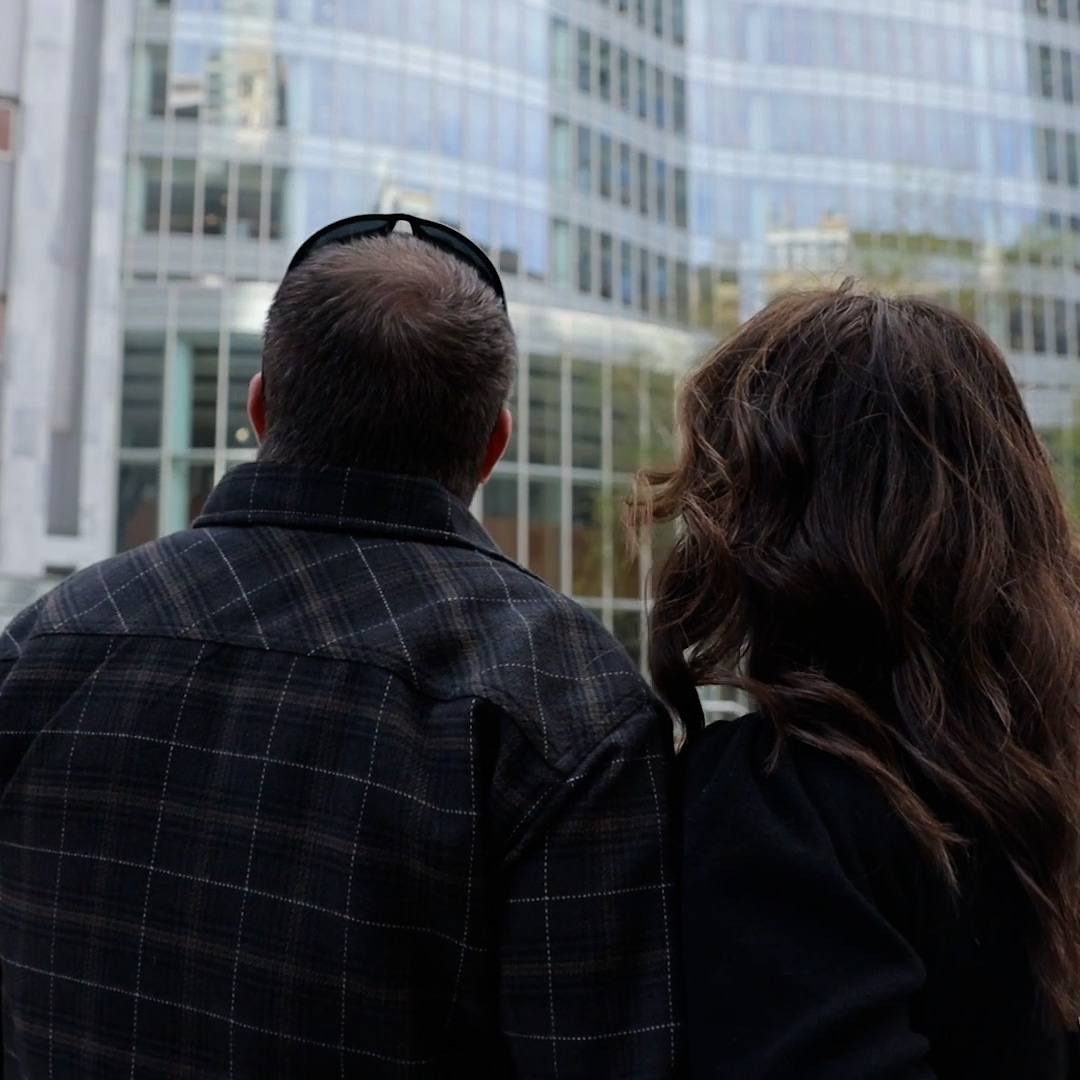A suspicious finding during a routine physical led to a diagnosis of coronary artery disease for Mark Guthrie. Heart surgery quickly followed, and now the longtime track and field coach is back to work and feeling great.
Mark Guthrie knows how to build a winning team. The longtime collegiate track and field coach has helped guide dozens of teams to divisional and national titles. He's earned a few titles himself along the way, too, including being named Division III National Coach of the Year eight times.
So Guthrie had experience to draw on when he needed to assemble another kind of team last year after a routine physical with Jacob Erickson, D.O., at Mayo Clinic Health System — Franciscan Healthcare in Onalaska, Wisconsin, pointed to a problem with his heart.
"I had a quick EKG as part of my physical, and they told me they thought they saw something," Mark says. "They asked me how I felt. I'd just laid nine yards of mulch. I felt great."
Even so, Mark scheduled a stress test to check how his heart worked during physical activity. "I failed after six minutes," he says. That led to another test: a coronary angiogram, which uses X-rays to check the flow of blood in heart vessels. The test revealed he had coronary artery disease.
"Two of my arteries had 80 percent blockage, and two had 40 percent blockage," Mark says, a fact he attributes to his less-than-heart-healthy diet.
"I'd had blood work done with my physical, and my blood sugar was around 400, and my A1C was around 12. I was pretty proud. Those were big numbers," Mark jokes.
But he knew the truth was no laughing matter. Those test results revealed he had diabetes, which greatly increases the risk of developing heart problems.
Innovative care, lower risk
Mark met with Tahir Tak, M.D., Ph.D., a cardiologist at Mayo Clinic Health System — Franciscan Healthcare in La Crosse, to discuss his treatment options. He could have an angioplasty, which is a minimally invasive procedure performed through a small incision to place stents to open blocked arteries. Or he could undergo coronary bypass surgery, which is an open-heart procedure that redirects blood around the blocked arteries. Because Mark had four blocked arteries, Dr. Tak recommended bypass surgery over angioplasty.
"In the long term, the best way to treat this was bypass," Mark says. "So I decided to go the full monty."
"I liked [Dr. Wiechmann] right away. I liked his personality and his temperament. He was knowledgeable and put me at ease."
Mark Guthrie
Because open-heart surgery isn't performed in La Crosse, Mark had another decision to make: where to have the procedure done. Dr. Tak suggested Robert Wiechmann, M.D., a cardiovascular surgeon at Mayo Clinic Health System in Eau Claire, Wisconsin. A meeting with Dr. Wiechmann sealed the deal.
"I liked him right away," Mark says. "I liked his personality and his temperament. He was knowledgeable and put me at ease."
During the operation, Dr. Wiechmann and his team used arteries from Mark's chest wall and arm to create bypasses around the blocked arteries in his heart. The procedure was completed without ever stopping Mark's heart — a process known as off-pump bypass. It lowers the risks associated with bypass surgery, including stroke, infection and memory problems after surgery. Only 5 percent of hospitals in the U.S. offer off-pump bypass, but it's used in 98 percent of the procedures at Mayo Clinic Health System in Eau Claire.
New habits, renewed health
After a short hospital stay, Mark was able to return home. "My care in the hospital was outstanding," he says. "Going in, I felt confident in the Mayo name. I was never worried about the outcome. I knew I was in capable, caring hands."
Those caring hands continued to guide Mark during his recovery. He attended 12 weeks of cardiac rehabilitation in La Crosse, where he worked with exercise physiologists to gradually return to his presurgery activity level.
"They kept pushing me to do a little more each day," Mark says. "As a coach, that was really comfortable to me."
Less comfortable were the dietary changes Mark needed to made as a result of his diabetes diagnosis. "I can't eat whatever I want anymore," he says. "I was drinking way too much soda. Green beans are now my friend."
"I feel exactly the way I did before surgery, and I felt good then. I'm pretty doggone happy."
Mark Guthrie
Those new eating habits — together with medication — have helped Mark bring his blood sugar level down to a healthy range. And while his diet is different, much of the rest of his life has remained the same since his diagnosis and surgery.
"I'm back at work, and I feel great," Mark says. "I feel exactly the way I did before surgery, and I felt good then. I'm pretty doggone happy."
He's also feeling grateful for the team that helped heal his heart, ensuring that he was able to get to know a new member of his home team. "I got to meet my newborn grandson, who I would possibly have never met without the great care I received," Mark says.
Mark's thankful, as well, to all those who provided support and encouragement to him during his recovery. "So many of my former athletes reached out to me when they heard what was happening," he says. "It makes you realize that success is not always about wins and losses. It's the friendships you make along the way."
Note: A version of this story previously was published in Hometown Health.
HELPFUL LINKS
- Read more about coronary bypass surgery.
- Connect with others talking about heart and blood health on Mayo Clinic Connect.
- Explore Mayo Clinic Health System.
- Request an appointment.
Related Articles








